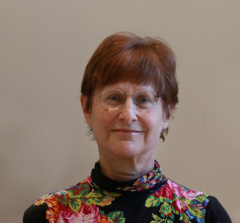Summary: ADHD is a 24-hour disorder. Nighttime difficulties associated with ADHD include delayed circadian rhythm (going to sleep too late) and night to night variability in sleep patterns. Difficulties with sleep further exacerbate problems with attention and impulse control. ADHD is a disorder of self-regulation that also makes it more difficult to entrain a regular sleep rhythm. This webinar will review how families and individuals with ADHD can improve this vicious cycle and in obtaining a good night's sleep improve their well-being during the day as well.
Target Audience: Physicians (psychiatrists, pediatricians, child neurologists), psychologists, social workers, other mental health clinicians and researchers, and students and trainees.
Upon completion of this activity, participants will be able to:
- Review of sleep disorders, and relative prominence of sleep problems in ADHD
- Clarify how ADHD and sleep difficulty are mutually reinforcing
- Assessment of sleep in ADHD
- Review of behavioral treatments
- Review of medication treatments
- What we still don't know!
February 2, 2022 from 10AM to 11:15AM EST
This presentation will take place virtually on Zoom. You must pre-register to attend
Continuing Education (CE/CEU) Information
Physicians: The Harvard Medical School is accredited by the Accreditation Council for Continuing Medical Education to provide continuing medical education for physicians. The Harvard Medical School designates this live activity for a maximum of 1.25 AMA PRA Category 1 Credits™. Physicians should claim only the credit commensurate with the extent of their participation in the activity.
Psychologists: This program is co-sponsored by the Massachusetts Psychological Association, Wellesley, MA for a maximum of 1 Credit. The Massachusetts Psychological Association is approved by the American Psychological Association to offer continuing education for psychologists. The Massachusetts Psychological Association maintains responsibility for the program and its content.
Social Workers: The National Association of Social Workers has approved this series for continuing education credits for social workers.

